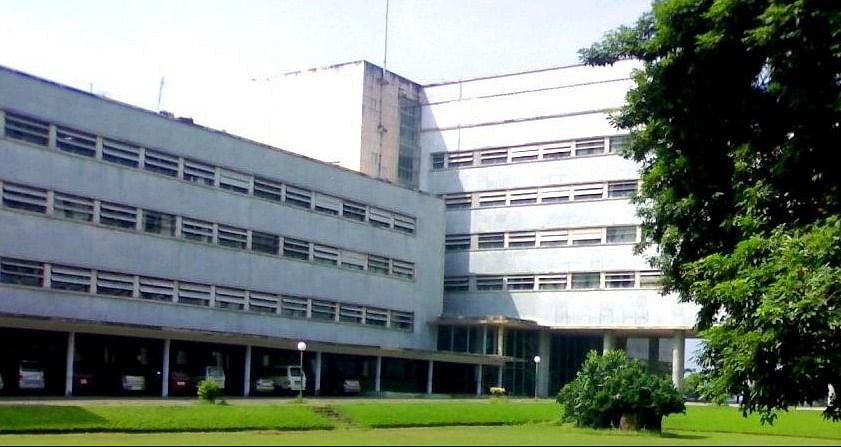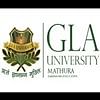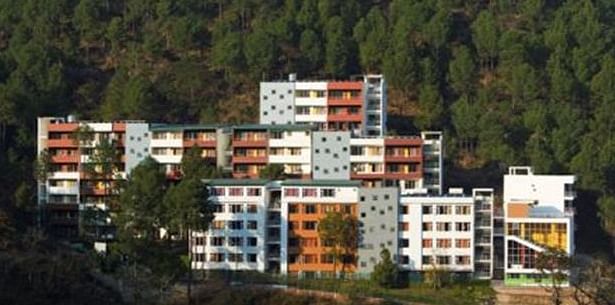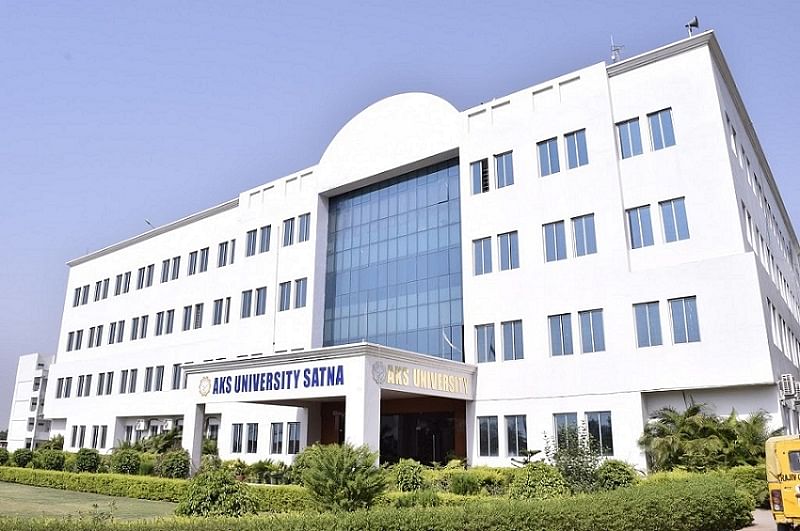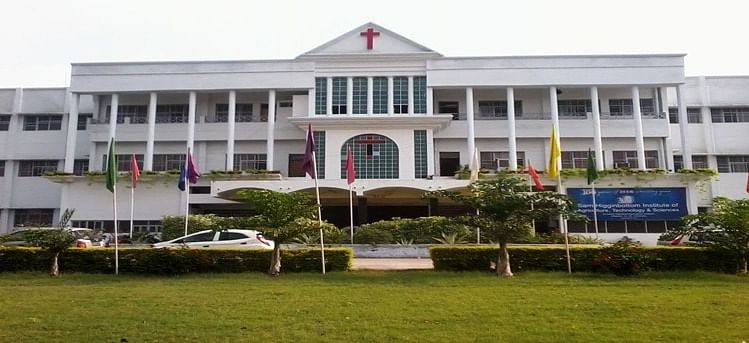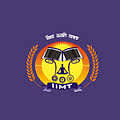M.Sc Agriculture Syllabus and Subjects

The MSc Agriculture syllabus covers topics such as advanced techniques of farming and the scientific study of farming, agribusiness, and husbandry. M.Sc Agriculture subjects include topics such as Water & Nutrient Management, Seed Technology, Horticulture, Agricultural Statistics, Plant Biochemistry, etc.
The MSc Agriculture subjects and syllabus is divided into four semesters, spanning a period of two years. The M.Sc Agriculture syllabus pdf can be downloaded from the official website of the colleges offering the course.
The MSc Agriculture syllabus provides in-depth study and research work during the entire course period that helps graduates at building job-specific skills in contemporary agricultural practices, making the M.Sc Agriculture job scope substantially extensive and broad.
Table of Contents
- Semester Wise MSc Agriculture Syllabus
- M.Sc Agriculture Subjects
- College Wise M.Sc Agriculture Syllabus
Semester Wise MSc Agriculture Syllabus
The MSc Ag syllabus aims to cover all the foundation areas in agricultural science and provides comprehensive knowledge in mixed farming, plantation agriculture, Subsistence farming, dryland & wetland farming, etc. A common structure of the semester-wise M.Sc Agriculture syllabus is given below:
First-Year MSc Agriculture Syllabus
Below is the list of M.Sc Agriculture subjects in the first year.
|
Semester I |
Semester II |
|
Soil Chemistry |
Soil Physics |
|
Modern Concepts in Crop Production |
Soil Mineralogy, Genesis AndClassification |
|
Principles and practices of Soil fertility and Nutrient management |
Principles and Practices of Weed Management |
|
Principles and Practices of Water Management |
Dryland farming and Watershed management |
|
Agrometeorology and crop weather forecasting |
Agronomy of Oil Seeds, Fibre, and Sugar Crops |
|
Electives |
Electives |
Practical Topics in the First Year M.Sc Agriculture Syllabus
The practical topics in the first-year MSc Agriculture syllabus are given below:
- Determination of soil moisture by tensiometer and pressure plate apparatus
- Measurement of soil water potential by using a tensiometer
- The procedure of plant and soil sampling
- Identification of common Kharif and Rabi weeds
Second Year M.Sc Agriculture Syllabus
The subjects in the second-year MSc Ag syllabus are given below:
|
Semester III |
Semester IV |
|
Agronomy of Major Cereals and Pulses |
Soil Biology |
|
Principles and Practices of Organic Farming |
Agricultural Biochemistry |
|
Soil Survey And Land Use Planning |
Principles Of Plant Physiology |
|
Agricultural Pesticides |
Electives |
|
Electives |
Research Project |
Practical Topics in the Second Year MSc Agriculture Syllabus
The practical topics in the second-year MSc Agriculture subjects are given below:
- Determination of oil content in oilseeds and computation of oil yield
- Phenological Studies in Sugarcane
- Calculation on the herbicidal requirement for field crops under aquatic situations
- Assessment of crop yield on the basis of growth analysis
Note: Depending on the university/college, the syllabus may differ slightly. Students can access the MSc Agriculture syllabus pdf by visiting the college website.
M.Sc Agriculture Subjects
The M.Sc Agriculture subjects aim to provide theoretical and practical insight into agriculture and plant science along with the study of soil cultivation techniques, crop harvesting, animal husbandry, and manufacturing edible products from plant or animal resources. Some of the core & Elective M.Sc Agriculture subjects are given below:
Core M.Sc Agriculture Subjects:
The M.Sc Agriculture course consists of core and elective subjects. Following is the M.Sc Agriculture subject list consisting of core topics:
- Agronomy
- Soil Science & Agricultural Chemistry
- Soil Fertility & Nutrient Management
- Plant Breeding & Genetics
- Modern Concepts in Crop Production
- Principles and Practices of Weed Management
- Plant Physiology
- Entomology
Elective MSc Agriculture Subjects:
Some of the elective MSc Agriculture subject list in the MSc Agriculture syllabus are given below.
- Argo-economics
- Agricultural Statistics
- Fertilizer Technology
- Production Technology of Spices, Aromatic, Medicinal, and Plantation Crops
- Crop Production under Special Situations
- Cropping Systems and Sustainable Agriculture
M.Sc Agriculture subjects in Detail
The subjects in the MSc Ag syllabus are dynamic and spread across various domains such as Economics, Environmental Science, Horticulture, Statistics, etc. A detailed view of some of the M.Sc Agriculture subject list is given below:
|
M.Sc Agriculture subjects |
Topics Covered |
|
Soil Physics |
Soil water behavior-infiltration, Soil physical environment & soil fertility relationship, Soil compaction processes, soil texture, soil structure-genesis |
|
Soil Chemistry |
Chemical composition of soils, Soil reaction, Chemistry of acid & salt-affected soils and their reclamation, clay-organic matter interaction in retention |
|
Soil Fertility and Nutrient Management |
Soil fertility and productivity, Essential plant nutrients, crop response to different nutrients, residual effects and fertilizer use efficiency, fertilizer mixtures, and grades |
|
Water Management |
Water and its role in plants, water resources of India, major irrigation projects, Soil water movement in soil and plants, Water management of the crops, and cropping systems |
|
Weed Management |
Weeds, Crop weed association, competition & allelopathy, Concepts of weed prevention, control & eradication, Physical, cultural, chemical, biological & integrated weed management |
|
Organic Farming |
Organic farming - concept and definition, Organic farming & water use efficiency, earthworms & vermicompost, Green manures & biofertilizers, Labeling & accreditation procedures |
College Wise M.Sc Agriculture Syllabus
The subjects and syllabus offered by M.Sc Agriculture colleges can differ reflecting their unique educational objectives. To access and download the M.Sc Agriculture syllabus pdf, students should visit the official website of their selected university. The following sections provide a general outline of the syllabus of the M.Sc Agriculture colleges in India.
Lucknow University M.Sc Agriculture Syllabus
The Lucknow University curriculum covers fundamental subjects like soil chemistry, plant nutrition, and soil management. It also delves into more specialized areas like soil mineralogy and agricultural biochemistry. The semester wise MSc AG syllabus is detailed in the table below:
|
Semester I |
Semester II |
|
Soil Chemistry |
Soil Physics |
|
Soil Fertility and Plant Nutrition |
Soil Mineralogy, Genesis and Classification |
|
Management of Problem Soils and Water |
Manures and Fertilizers |
|
Principles and Practices of Soil Fertility and |
Statistics and Computer Application |
|
Semester III |
Semester IV |
|
Seminar |
Soil Biology and Biochemistry |
|
Agricultural Biochemistry |
Principles of Plant Physiology |
|
Soil Survey and Land Use Planning |
Project Work |
|
Agricultural Pesticides |
Guru Nanak Dev University M.Sc Agriculture Syllabus
The Guru Nanak Dev University M.Sc Agriculture syllabus emphasizes on modern concepts in crop production, weed management, and sustainable agriculture. It also covers topics related to soil fertility, nutrient management, and experimental research techniques. An overview of the detailed MSc AG syllabus is provided below:
|
Semester I |
Semester II |
|
Modern Concepts in Crop Production |
Principles and Practices of Weed Management |
|
Soil Fertility & Nutrient Management |
Agronomy of Oil Seeds, Fibre and Sugar Crops |
|
Principles and Practices of Water Management |
Field Plot Techniques |
|
Soil Chemistry and Biochemistry |
Soil Fertility and Fertilizer Use |
|
Statistical Methods for Research Workers |
Experimental Designs for Research Worker |
|
Weed Management |
Farming Systems and Sustainable Agriculture |
|
Crop Production under Special Situations |
Production Technology of Spices, Aromatic, Medicinal and Plantation Crops |
|
Semester III |
Semester IV |
|
Agronomy of Major Cereals and Pulses |
Cropping Systems and Sustainable Agriculture |
|
Principles and Practices of Organic Farming |
Dry Land Agriculture and Watershed Management |
|
Fertilizer Technology / Physiology of Growth & Development/ Fundamentals of Agroclimatology |
Research Work |
|
Credit Seminar |
|
|
Research Work |
Syllabus for MSc Agriculture Entrance Exam
For admissions to the MSc Agriculture course, colleges may follow either entrance-based or merit-based selection criteria. Specific universities may have variations in their MSc Agriculture entrance exam syllabus. Listed below is a general outline of the syllabus for MSc agriculture entrance exam:
|
MSc Agriculture Subjects for Entrance Exam |
Topics Covered |
|
Agriculture Science |
Questions covering agronomy, horticulture, soil science, and plant breeding. |
|
Science |
Questions encompass biology, chemistry, and physics, forming the foundation. |
|
Agricultural Engineering |
Topics include machinery, irrigation, and sustainable practices. |
|
General Knowledge |
Awareness of agricultural policies, trends, and issues. |
|
Aptitude and Reasoning |
Logical and analytical questions. |
|
Mathematics |
Questions covering arithmetic, algebra, and quantitative reasoning |
|
English |
Assess proficiency in reading, grammar, and vocabulary. |
M.Sc Agriculture Course Structure
The M.Sc Agriculture course structure is pragmatic. Seminars, labwork, field trips, projects, and other certifications are essential elements under the M.Sc Agriculture course structure. The standard course structure is given below:
- Practical Learning (lab)
- Core Subjects
- Elective Subjects
- Internship
M.Sc Agriculture Teaching Methodology and Techniques
M.Sc Agriculture includes unique learning methodologies. Interactive classroom sessions, case studies, and research projects are part of the teaching approach. Some of the teaching methods and practices associated with the M.Sc Agriculture course are given below:
- Assignments
- Following course module books
- Case studies/Research work
- Internships
M.Sc Agriculture Projects
Projects under the MSc Ag syllabus act as mini-thesis which is a compulsory project for the students to complete at the end of their 4th semester. Some of the project topics under the MSc Ag syllabus are given below:
- Gsm-Based Smart Agriculture System
- All-In-One Farming Robot
- Tree Shifter Project
- Terrace Garden Project
- Solar Operated Farming Project
M.Sc Agriculture Reference Books
Students who want to obtain in-depth knowledge of agricultural science can review the reference books. These books will help them to perform better through the course and understand the concepts in an effective way. Some of the Reference Books under the MSc Agronomy syllabus are given below:
|
MSc Agriculture Subjects |
Books |
Authors |
|
Crop Production |
Principles and Practices of Agronomy |
P Balasubramaniyan and SP Palaniappan |
|
Soil Fertility and Nutrient Management |
The Nature and Properties of Soils |
NC Brady and R.R Weil |
|
Weed Management |
Principles in Weed Management |
RJ Aldrich and RJ Kramer |
|
Organic Farming |
Organic Farming – Theory and Practice |
SP Palaniappan and K Anandurai |
|
Water Management |
Irrigation and Drainage |
D. Lenka |
Top M.Sc Agriculture Colleges
Top Agriculture Entrance Exams
M.Sc Agriculture Fee Structure
FAQs on M.Sc Agriculture Syllabus and Subjects
Q: What is the 1st year syllabus of MSc Agriculture?
Q: What are the core subjects of MSc Agriculture?
Q: What are the elective subjects in MSc Agriculture?
Q: What are the MSc Agriculture projects?
Q: What are the important books for MSc Agriculture?


